Coronavirus: Self-employed missing out on financial aid
- Published
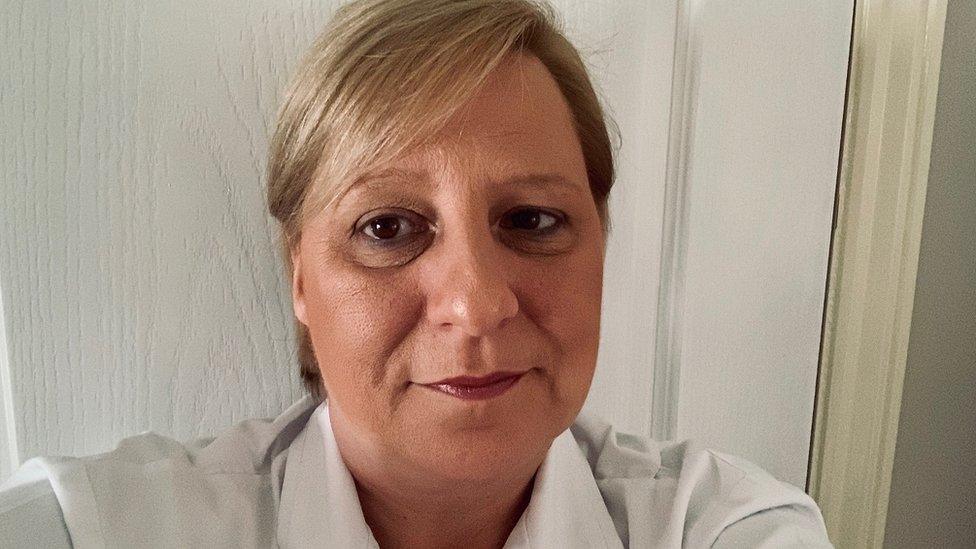
Sarah Knott has taken a job in a care home after being forced to stop working as a driving instructor
"To be told, thanks for the all pay-as-you-earn for the last 30 years, we are not going to give you anything as a new start-up business, it is a kick in the teeth."
While the government has announced a number of support packages for employees and businesses during the coronavirus pandemic, some new start-ups, and newly self-employed people say they are ineligible for financial help.
Some say they now have no monthly income until they can return to work, putting them under serious financial pressure.
Among them is Sarah Knott, from Shrewsbury.
She set up her own business as a driving instructor in October 2018, after being made redundant from her job as a bank manager.
Self employed people who have suffered a loss in income, will receive a taxable grant, external, worth 80% of their profits up to a cap of £2,500 per month. Initially, this will be available for three months in one lump-sum payment, and will start to be paid from the beginning of June
A person can claim if they have submitted their Self Assessment tax return for the tax year 2018 to 2019.
But because Ms Knott's return would include her time as an employee, she does not believe she qualifies.
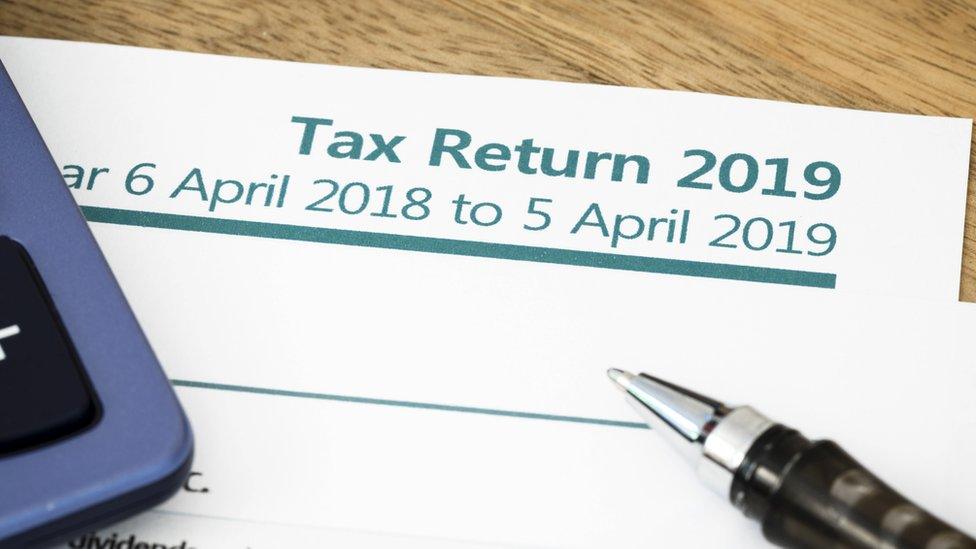
Ms Knott does not believe she qualifies for the government's taxable grant for the self-employed
She has taken up a job in a care home in order to keep some income while she is unable to run her business.
Ms Knott has also had to postpone her wedding, which was due to take place on 25 June.
"I finished the day before the lockdown started because of social distancing, you're not two metres apart in a car and I had a test cancelled the Friday before," she said.
"I applied for Universal Credit but was told I was not eligible because my partner is still working.
"There are about 10% of us not accounted for, and a lot of us have worked in past, I paid a lot of money to the government over the years and to find out I am not eligible, I cried for two days.
"The house is in my name, I had the house before I was with my partner, my outgoings are about £1,700 per month, just for the household bills, mortgage, gas and electric.
"Working in the care home will just bring in a bit of money, I have been able to defer mortgage payments, loans and things, but the banks can't afford to do that forever."
Chancellor Rishi Sunak announced the grant at the end of March
The government has said some small, or medium-sized, businesses may be entitled to reclaim the costs of Statutory Sick Pay (SSP) for employee absence due to COVID-19.
Some businesses in England will be eligible for a Business Rates holiday for 1 year from 1 April 2020.
If your business is eligible for small business rate relief or rural rate relief in England, you are entitled to a one-off cash grant of £10,000, while businesses in the retail, hospitality or leisure sector in England, may also be entitled to a cash grant.
Anyone with a property with a rateable value of £15,000 or less will be entitled to a grant of £10,000
A new temporary Coronavirus Business Interruption Loan Scheme, delivered by the British Business Bank, has been launched to support businesses to access bank lending and overdrafts
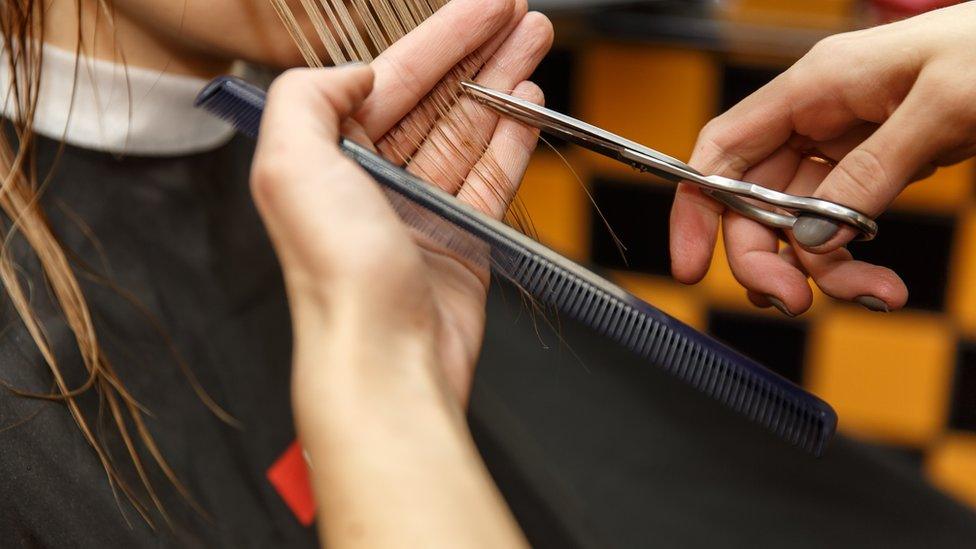
Laura Baxter-Smith has been told she qualifies for just £25 a month in Universal Credit
For Laura Baxter-Smith, a self-employed hairdresser and mother-of-one, who has no staff and no premises, these measures have been of little help.
She has been told she is eligible for just £25 per month in Universal Credit, as her wife is a secondary school teacher on full pay.
Mrs Baxter-Smith, from Shawbury in Shropshire, has been working for five-years so will be eligible for the taxable grant, but that money will not come before June.
"It's looking like hairdressers won't be able to work for a while yet so it's leaving us all very worried on what the future holds," she said.
Kelly Hadley, from Wombourne in south Staffordshire, is still waiting to hear if she will qualify for Universal Credit.
Because her husband Russell is still working full-time for an environmental company, they do not believe they will receive much support.
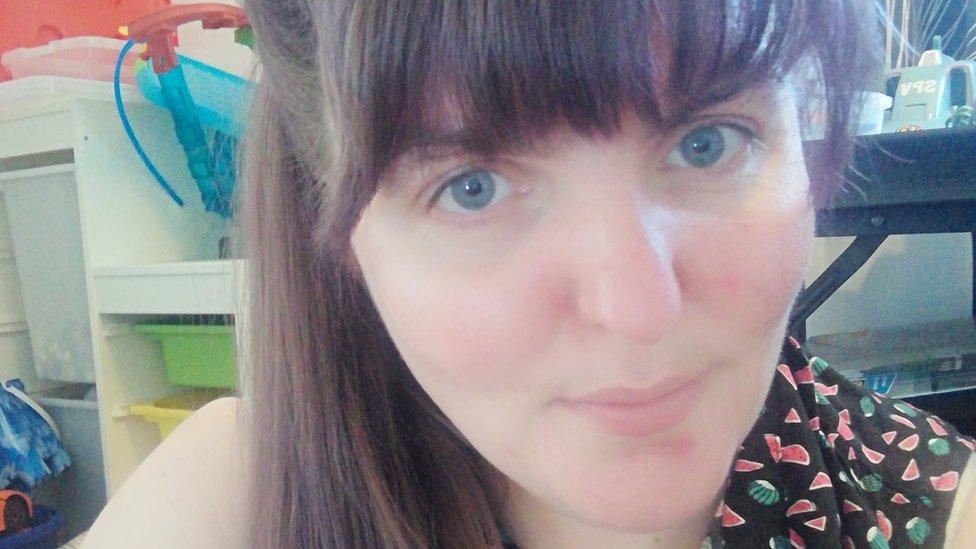
Kelly Hadley set up her childminding business in September
The 32-year-old set up her childminding business in September, and does not qualify for the taxable grant to cover lost earnings as she cannot provide the necessary tax returns.
Her husband, 48, who is type-one diabetic, also classes as high-risk, external, so Mrs Hadley said she is reluctant to find work in front line services, like caring, and risk putting his health in jeopardy.
"I don't think the government quite thought about it," she said.
"I understand it is a serious thing that has happened in such short period of time and a lot of people out there are getting a lot of support, I just feel like we are being left behind.
"Me and my husband have worked since we were 16. To have been paying into the system for so long and not get a penny, is really rough.
"We have taken a mortgage holiday but that didn't hit last month, so it was taken out this month, now we have maxed out our overdraft to just pay the bills."

A SIMPLE GUIDE: How do I protect myself?
AVOIDING CONTACT: The rules on self-isolation and exercise
HOPE AND LOSS: Your coronavirus stories
LOOK-UP TOOL: Check cases in your area

Follow BBC West Midlands on Facebook, external, Twitter, external and Instagram, external. Send your story ideas to: newsonline.westmidlands@bbc.co.uk , external
- Published27 March 2020
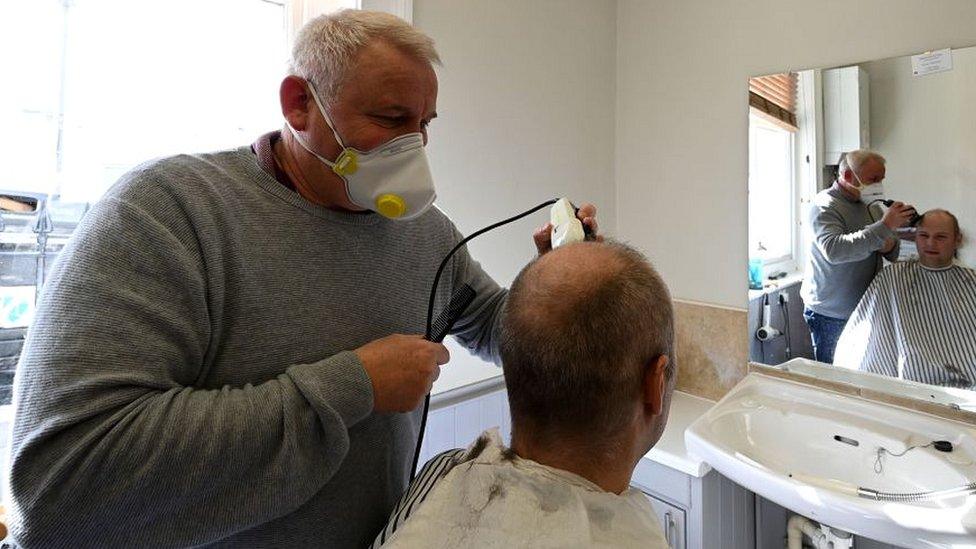
- Published3 March 2021

- Published26 March 2020
